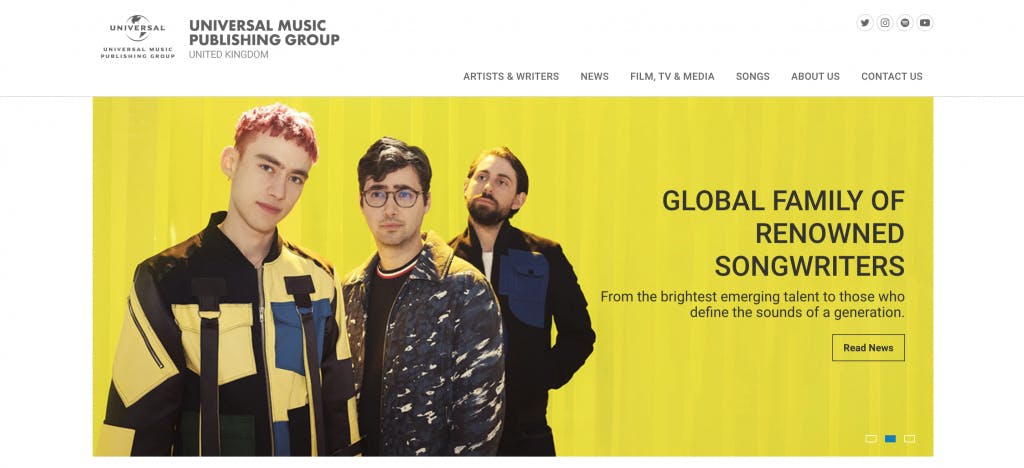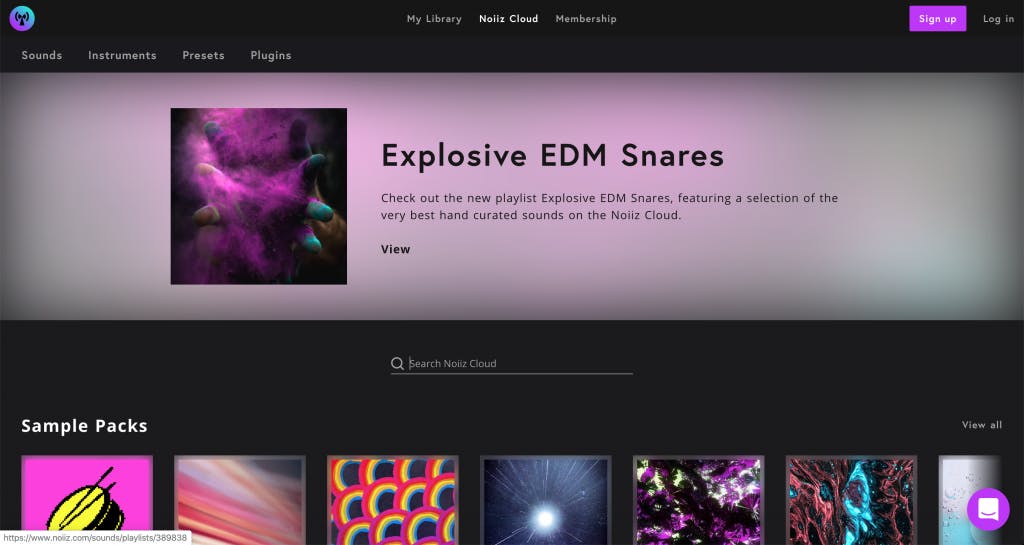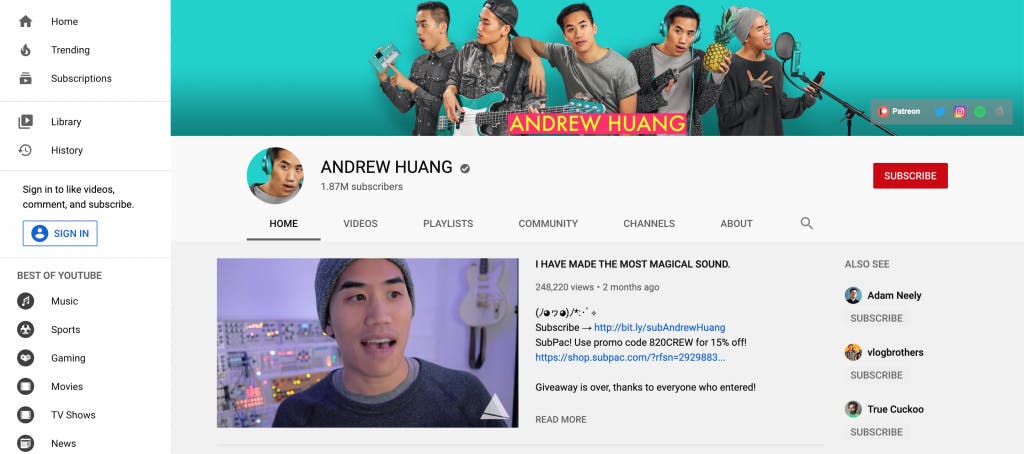How to make money as a music producer
Before you read this post, make sure you understand the pros and cons of trying to earn a living from your art. Many people chase 'the dream' of being successful and recognised by producing music for a living, but don't consider how pursuing music as a means to generate income is unlikely to give them the life they picture and risks damaging their love of music. Spending the majority of your time, day in day out on making music in order to get paid is a very different thing to making music because you love it and want to express yourself.
Of course, there are many people who are happy and successful and make music for a living, but it's worth taking a step back to understand what making money from being a music producer really means before you roll up your sleeves and jump in. In order to give you a broad perspective before you commit, here are some ways in which you can generate income from your art...
Produce library music

Companies like Universal Music license huge catalogues of music for use with TV, film, online video and other media. As a music producer, you can sell music in return for an upfront fee and/or a publishing royalty %. These companies often act as an umbrella for smaller niche brands, so you can research which brands suit what you do, find someone to contact through their website or on Linkedin and submit your music.
Once you have a few connections, you can start to build up your release catalogue and over time, especially if you negotiate a good royalty split, you can earn regular income when your music is licensed. Stick to what you are good at and build up a reputation within your A&R contacts so they know to come to you when they are looking for a particular style.
Sell beats
Platforms like Beatstars offer music producers the ability to sell 'beats' to rappers or singers who are looking for music they can rap or sing over and then release. Beats are usually full pieces of music with no vocals and there are various different licensing options available.
Selling beats is similar in some ways to selling library music, although typically Hip Hop and Pop music are most popular in this market.
Sell samples

Platforms like Noiiz commission music producers to create sample packs and offer upfront money and/or a royalty split from sales. You'll need good sound design chops, technical ability and patience, but selling samples to other music producers can be a lucrative revenue stream with a relatively low barrier to entry.
Get commissioned for bespoke music
If you have a reputation as a music producer and have built up the right connections, you may be commissioned for bespoke music. This is generally higher paid than library music work, but harder to get. The music might be for a film, an advert, a corporate video or for an established artist.
Join a production agency
They are few and far between, but they do exist! Production agencies can help music producers find work and will take a cut for their services. As above, being well known and respected for a particular 'sound' will be beneficial here and building up a list of credits within a particular niche should increase the amount of work available over time.
Build an audience
If you are able to build an audience of loyal followers who love what you do, there will opportunities to earn money. Once you have earned trust from people, they will give you permission to sell to them and be happy to give you money so you keep providing value for them. It's actually less important what you actually sell at this point, so you can try different things like merch or experiences or private gigs or anything you can get creative with.
Play live
If you are good at what you do and have put together a solid live set, you may be able to get paid for playing in local venues. If you have built a large audience, you may even be able to put on your own gigs. It will help to network with promoters and venue owners in order to secure regular work, or you might join an agency or work with a manager to help.
Teach
Teaching others how to produce music online by selling courses or even offering 1 on 1 tuition can be an effective way to earn revenue from your skills as a music producer. You could start by approaching existing educational platforms to submit course content for them, or you could build your own audience and sell directly to them.
Sell downloads or stream
As you probably know, it's very difficult to earn any meaningful revenue from streaming or digital downloads unless you have already built a large audience. Still, if you are on the rise, people need to listen to your music. Platforms like Bandcamp are good if you want to sell directly to your fans and they are prepared to pay to download your music. If you are chasing a large audience, streaming companies like Spotify and Apple Music have huge distribution. If you get featured on a playlist or suggested by their algorithms, they may enable you to find new listeners. You'll need to use a distribution company like Distrokid in order to get your music accepted.
Be a ghost producer
Producing music for other ... producers! It might sound surprising, but often bigger artists work with multiple producers who are paid for their work and remain anonymous. You'll need to build up good connections and know the right people to get a foot in the door, but if you are able to secure royalties it might be worth the effort. Of course, you'll have to be happy selling your soul to the devil 😁
Remix
Remixing other artists work can earn you money, which is usually paid by the label who releases the track you remix. If you have a good selection of tracks to show people and labels feel like you'll add value to their existing artists you stand a good chance of being commissioned. This can also be a great way to find new collaborators, expand your network and find other work.
Vlog

Summary
Chances are you'll need to try many different avenues to see what works for you. It's also worth considering how doing some things, like building an audience or uploading your music to streaming platforms might not earn you revenue directly, but act as an amplifier for other channels that do pay, like playing live.
Music producers who earn a living from what they do need good entrepreneurial and marketing skills to go it alone, which doesn't suit everyone. There is absolutely nothing wrong with having a great career in a profession that has nothing to do with music and producing music only because you love it.
.....